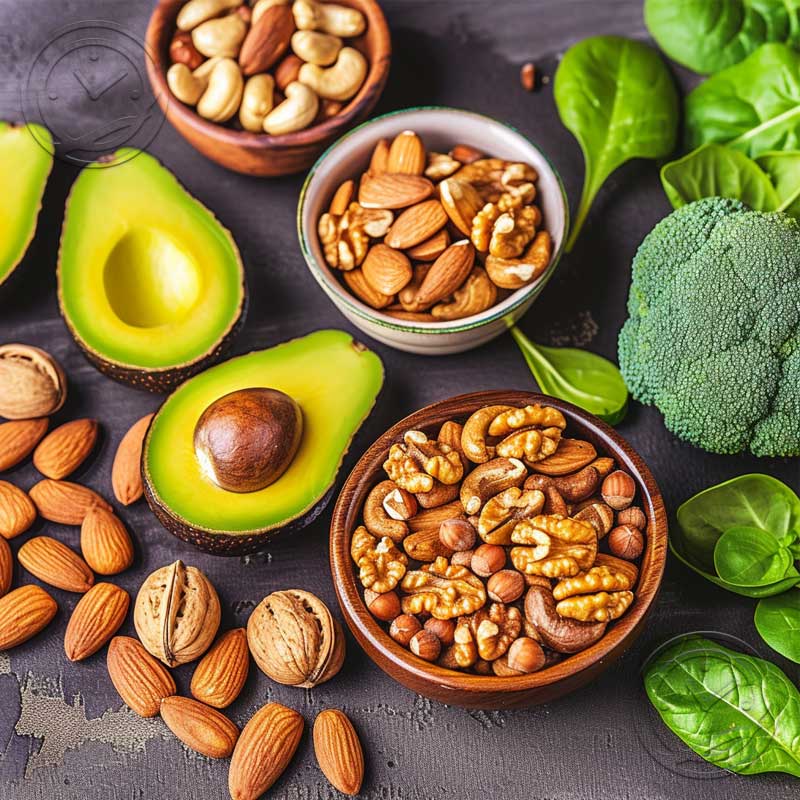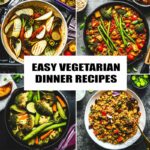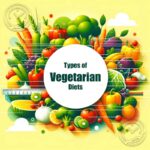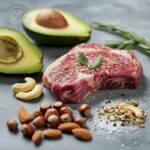Omega-3 fatty acids
Omega-3 fatty acids are a type of essential fatty acid that the body cannot produce on its own.
They are important for a number of bodily functions, including brain development, heart health, and immune function.
Omega-3 fatty acids can be found in a variety of foods, including fish, nuts, and seeds.
Vegetarians and vegans may need to take a supplement to get enough Omega-3 fatty acids in their diet.
Omega-3 fatty acids for vegetarians
Omega-3 fatty acids are essential fatty acids that the body cannot produce on its own, so vegetarians need to make sure they get them from their diet.
There are a number of ways to do this, including eating foods that are high in Omega-3 fatty acids, such as flaxseed, walnuts, and chia seeds, or taking a supplement.
Omega-3 fatty acids are important for a number of reasons, including:
- Maintaining a healthy heart
- Improving brain function
- Reducing inflammation
- Protecting against certain types of cancer
Vegetarians who do not get enough Omega-3 fatty acids in their diet may be at an increased risk for some of these health problems.
If you are a vegetarian, it is important to talk to your doctor about how to get enough Omega-3 fatty acids in your diet.
Easy Vegetarian Dinner Recipes
Discover the world of easy vegetarian dinners that are both simple and packed with flavor. Whether you're a seasoned vegetarian…
ALA, EPA, and DHA
Omega-3 fatty acids are a type of polyunsaturated fatty acid that are essential for human health.
There are three main types of Omega-3 fatty acids: alpha-linolenic acid (ALA), eicosapentaenoic acid (EPA), and docosahexaenoic acid (DHA).
ALA is found in plant-based foods such as flaxseed, chia seeds, and walnuts.
EPA and DHA are found in fatty fish such as salmon, tuna, and mackerel.
ALA is converted to EPA and DHA in the body, but this conversion is not very efficient.
Therefore, it is important to eat foods that are high in EPA and DHA, especially if you are a vegetarian or vegan.
ALA, EPA, and DHA have a number of health benefits, including:
- Reduced risk of heart disease
- Reduced risk of stroke
- Reduced risk of cancer
- Improved cognitive function
- Improved mood
- Reduced inflammation
If you are not getting enough Omega-3 fatty acids in your diet, you may want to consider taking a supplement.
However, it is important to talk to your doctor first to make sure that a supplement is right for you.
Foods high in ALA
The following foods are high in ALA:
- Flaxseed: One tablespoon of ground flaxseed contains about 2,300 mg of ALA.
- Chia seeds: One ounce of chia seeds contains about 5,000 mg of ALA.
- Walnuts: One ounce of walnuts contains about 2,500 mg of ALA.
- Canola oil: One tablespoon of canola oil contains about 1,000 mg of ALA.
- Soybean oil: One tablespoon of soybean oil contains about 700 mg of ALA.
- Edamame: One cup of edamame contains about 1,000 mg of ALA.
Easy Vegetarian Dinner Recipes
Discover the world of easy vegetarian dinners that are both simple and packed with flavor. Whether you're a seasoned vegetarian…
Foods high in EPA and DHA
The following foods are high in EPA and DHA:
- Fish, such as salmon, tuna, mackerel, herring, and sardines
- Algae oil
- Seaweed
- Algae supplements
It is important to note that not all fish are created equal when it comes to their EPA and DHA content.
Some fish, such as salmon, tuna, and mackerel, are higher in EPA and DHA than others, such as tilapia and cod.
If you are a vegetarian or vegan, you may need to take an algae oil or seaweed supplement to get enough EPA and DHA in your diet.
Flaxseed
Flaxseed is a small, brown seed that is packed with nutrients.
It is a good source of fiber, protein, and Omega-3 fatty acids.
Flaxseed can be used in a variety of ways, including in baked goods, smoothies, and salads.
Nutritional value
- One ounce of flaxseed contains 1.8 grams of fiber, 1.9 grams of protein, and 2.3 grams of Omega-3 fatty acids.
- Flaxseed is also a good source of vitamins and minerals, including magnesium, phosphorus, and zinc.
How to use flaxseed
- Flaxseed can be ground or whole. Ground flaxseed is more easily digested, but whole flaxseed has a longer shelf life.
- Flaxseed can be added to baked goods, smoothies, salads, and yogurt.
- Flaxseed can also be made into a flaxseed meal or flaxseed oil.
Potential risks
- Flaxseed contains a compound called phytic acid, which can bind to minerals and make them less available for absorption.
- Flaxseed can also cause digestive problems, such as gas and bloating.
- People with bleeding disorders should avoid taking flaxseed supplements, as they can increase the risk of bleeding.
Overall, flaxseed is a healthy and nutritious food that can be enjoyed in a variety of ways.
However, it is important to be aware of its potential risks and to talk to your doctor before taking flaxseed supplements.
Are you thinking about adopting a vegetarian diet? If so, you're in for a treat! Vegetarian diets are not only…
Chia seeds
Chia seeds are small, black or white seeds that come from the Salvia hispanica plant.
They are a good source of fiber, protein, and omega-3 fatty acids.
Chia seeds are also high in antioxidants, which can help protect cells from damage.
Chia seeds can be used in a variety of ways, including in smoothies, yogurt, oatmeal, and salads.
They can also be sprinkled on top of foods or used to make chia pudding.
Chia seeds are a good source of nutrients, but they also have some potential risks.
For example, chia seeds can absorb a lot of water, so it is important to drink plenty of fluids when consuming them.
Chia seeds can also cause digestive problems in some people.
Overall, chia seeds are a healthy and nutritious food that can be enjoyed in a variety of ways.
However, it is important to be aware of their potential risks and to consume them in moderation.
Walnuts
Walnuts are a type of tree nut that is high in Omega-3 fatty acids, protein, and fiber.
They are also a good source of vitamins and minerals, including magnesium, phosphorus, and copper.
Walnuts can be eaten raw, roasted, or added to salads, yogurt, or oatmeal.
They can also be used in baking.
Walnuts are a healthy snack that can help improve heart health, reduce inflammation, and lower cholesterol levels.
They may also help improve cognitive function and protect against certain types of cancer.
However, walnuts are also high in calories and fat, so it is important to eat them in moderation.
Potential risks of eating walnuts include:
- Allergies
- Indigestion
- Weight gain
Canola oil
Canola oil is a type of vegetable oil that is made from the seeds of the canola plant.
It is a popular cooking oil because it is relatively low in saturated fat and high in monounsaturated fat.
Canola oil is also a good source of vitamin E and omega-3 fatty acids.
Canola oil can be used in a variety of ways, including for cooking, baking, and frying.
It is also a good choice for salad dressings and marinades.
There are some potential risks associated with canola oil, such as the potential for it to be contaminated with harmful chemicals.
However, these risks are generally considered to be minimal.
Overall, canola oil is a healthy and versatile cooking oil that can be used in a variety of ways.
- Canola oil is a type of vegetable oil that is made from the seeds of the canola plant.
- It is a popular cooking oil because it is relatively low in saturated fat and high in monounsaturated fat.
- Canola oil is also a good source of vitamin E and omega-3 fatty acids.
- Canola oil can be used in a variety of ways, including for cooking, baking, and frying.
- It is also a good choice for salad dressings and marinades.
- There are some potential risks associated with canola oil, such as the potential for it to be contaminated with harmful chemicals.
- However, these risks are generally considered to be minimal.
- Overall, canola oil is a healthy and versatile cooking oil that can be used in a variety of ways.
Soybean oil
Soybean oil is a type of vegetable oil that is extracted from the seeds of soybeans.
It is a popular cooking oil that is used in a variety of dishes.
Soybean oil is also a good source of Omega-3 fatty acids, which are essential for good health.
Here are some of the nutritional benefits of soybean oil:
- It is a good source of Omega-3 fatty acids.
- It is low in saturated fat.
- It is a good source of vitamin E.
- It is a good source of antioxidants.
Soybean oil can be used in a variety of ways.
It can be used for cooking, baking, and frying.
It can also be used as a salad dressing or as a dip.
There are some potential risks associated with soybean oil.
Soybean oil is a high-calorie food, and it can be unhealthy if consumed in excess.
Soybean oil is also a source of omega-6 fatty acids, which can be harmful if consumed in excess.
Overall, soybean oil is a healthy oil that can be enjoyed in moderation.
It is a good source of Omega-3 fatty acids, and it is low in saturated fat.
However, it is important to be aware of the potential risks associated with soybean oil, and to consume it in moderation.
Edamame
Edamame is a type of soybean that is harvested while still immature.
It is a popular snack food in East Asia, and is increasingly being used in Western cuisine.
Edamame is a good source of protein, fiber, and vitamins.
It is also a good source of Omega-3 fatty acids, which are essential for good health.
Edamame can be eaten raw, steamed, or boiled.
It can be used in salads, soups, and stews.
It can also be made into a hummus-like spread.
Edamame is generally considered to be safe to eat.
However, there are some potential risks associated with eating edamame.
Edamame contains phytic acid, which can bind to minerals and make them difficult to absorb.
Edamame also contains a compound called lectin, which can cause digestive problems in some people.
Overall, edamame is a healthy and nutritious food.
However, it is important to be aware of the potential risks associated with eating it.
Fortified foods
In addition to eating foods that are naturally high in Omega-3 fatty acids, vegetarians can also get their daily dose of Omega-3 fatty acids by eating fortified foods.
Fortified foods are foods that have been added with nutrients that are not naturally present in them, such as Omega-3 fatty acids.
Some of the most common fortified foods that contain Omega-3 fatty acids include:
- Oat milk: Oat milk is a plant-based milk that is made from oats. It is a good source of Omega-3 fatty acids, and it typically contains about 2 grams of Omega-3 fatty acids per cup.
- Soy milk: Soy milk is another plant-based milk that is made from soybeans. It is also a good source of Omega-3 fatty acids, and it typically contains about 1 gram of Omega-3 fatty acids per cup.
- Tofu: Tofu is a soy product that is made from coagulated soy milk. It is a good source of Omega-3 fatty acids, and it typically contains about 1 gram of Omega-3 fatty acids per 100 grams.
- Nuts and seeds: Nuts and seeds are a good source of Omega-3 fatty acids, and they are often fortified with additional Omega-3 fatty acids. Some of the most common nuts and seeds that are fortified with Omega-3 fatty acids include walnuts, almonds, and chia seeds.
- Breakfast cereals: Some breakfast cereals are fortified with Omega-3 fatty acids. These cereals are a convenient way to get your daily dose of Omega-3 fatty acids, and they typically contain about 1 gram of Omega-3 fatty acids per serving.
It is important to note that not all fortified foods contain the same amount of Omega-3 fatty acids.
It is important to read the nutrition label carefully to make sure that you are getting enough Omega-3 fatty acids from your diet.
Algae oil
Algae oil is a type of oil that is extracted from algae.
It is a good source of omega-3 fatty acids, which are essential fatty acids that the body cannot produce on its own.
Algae oil is also a good source of vitamins A, D, and E.
Algae oil can be used in a variety of ways, including as a cooking oil, in salad dressings, or as a supplement.
It is also a popular ingredient in many health and beauty products.
There are a number of potential benefits of using algae oil, including:
- Improved heart health
- Reduced inflammation
- Improved cognitive function
- Reduced risk of some types of cancer
- Improved skin health
However, it is important to note that algae oil is a relatively new food product, and there is not yet a lot of research on its long-term effects.
Some studies have shown that algae oil can interact with certain medications, so it is important to talk to your doctor before taking algae oil supplements.
Overall, algae oil is a healthy and nutritious food that can provide a number of benefits.
However, it is important to use it in moderation and to talk to your doctor before taking algae oil supplements.





